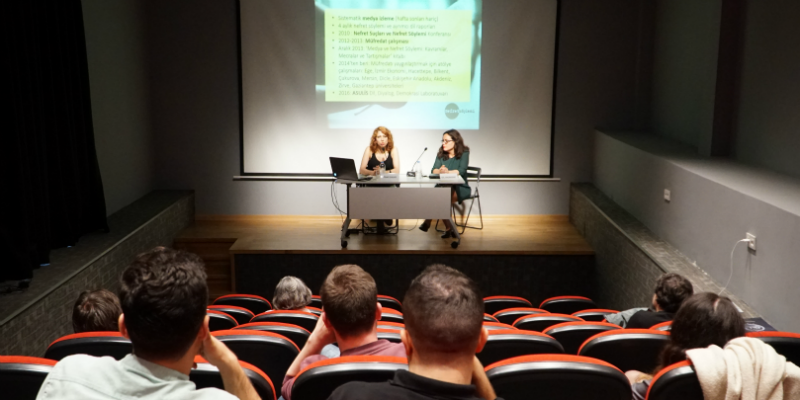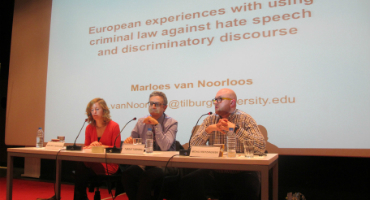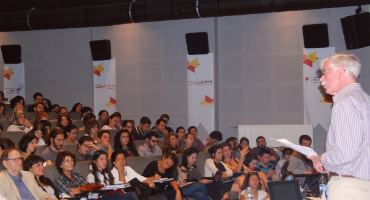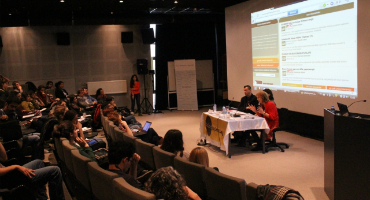Supported by Friedrich Naumann Foundation, Media Watch on Hate Speech Project’s findings concerning Turkish printed press between January-April 2017 were presented on June 19, 2017 in Havak Hall with a panel discussion moderated by İdil Engindeniz.
Firstly, Galatasaray University Faculty Member and the supervisor of Media Watch on Hate Speech reports İdil Engindeniz made a presentation about media, hate speech and discriminatory language in relation to the project. Emphasizing that being high in number doesn’t prevent discrimination, Engindeniz gave women as an example, who constitute almost half of the population. Pointing out that appealing to emotions in news incites discrimination and prejudice, Engindeniz stated that hate speech is not an expression of emotion, but rather a part of a structural problem and added that combating discrimination is not about a couple of journalists, but it is a struggle against the entire system. Engindeniz stated that the expression of “honor killing”, which legitimizes femicide, is no longer used in media thanks to feminist struggle and thus change is always possible.
After İdil Engindeniz, Project Coordinator Pınar Ensari presented the findings of Media Watch on Hate Speech project between January-April 2017, focusing on items on the agenda, most targeted groups and example articles that contain hate speech. Ensari stated that constitutional referendum on April 16 was the most important item on the agenda between January-April 2017 and increasing polarization before the referendum and politicians’ discourse gave way a rise in hate speech. Ensari also noted that more hate speech items were found in local press compared to national press for the first time in this period because of the rise in hate speech against Syrians. Emphasizing that this rise is one of the important findings of the report, Ensari stated that this rise was more apparent during Euphrates Shield Operation and before April 16 Referendum.
Concluding her presentation with favorable examples that don’t use a polarizing discourse, Ensari brought the issue of creating “a new language” into question. Ensari also reminded that the project monitors only printed press and there is need for such a work for social media. Noting that hate speech spreads in social media more quickly and dangerously, Ensari reminded that social media is also a tool with which a counter/alternative discourse can be created and put into circulation. The panel discussion ended with Q&A session with the participation of the audience.





